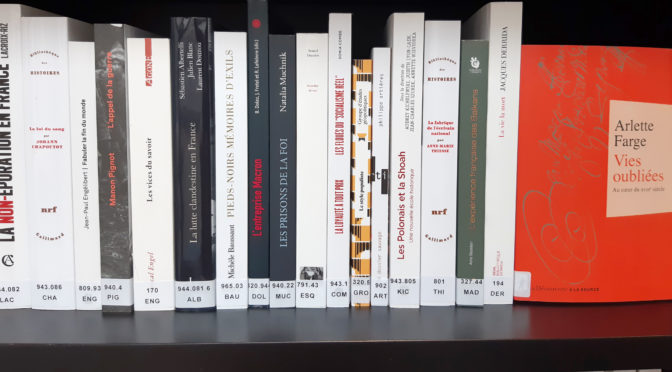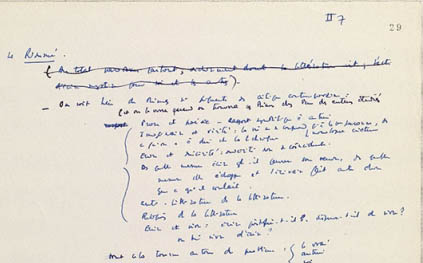
Dans le cadre de la célébration du centenaire de l’Association française d’action artistique (AFAA) et de la création du Service des Œuvres, le ministère de l’Europe et des Affaires étrangères et l’Institut français organisent, conjointement avec l’université de la Sorbonne-Nouvelle / Paris 3, un ensemble d’événements afin d’étudier l’histoire de la diplomatie culturelle française. D’autres établissements d’enseignement supérieur ou de recherche sont susceptibles de devenir partenaires de cette démarche.
Parmi ces événements, un colloque scientifique est prévu au printemps 2022 à l’université de la Sorbonne-Nouvelle, dont le champ d’étude portera sur l’histoire et l’action du réseau culturel français à l’étranger,, qui comprend les services de coopération et d’action culturelle, les instituts français, , les alliances françaises. Il portera également sur les politiques publiques qui ont sous-tendu cette action. Les actes de ce colloque feront l’objet d’une publication.
Le comité scientifique en charge de ce colloque lance un appel à communication ouvert aux chercheurs de toutes langues, nationalités et disciplines – même si la perspective générale du colloque est prioritairement historienne.
Les propositions pourront porter sur différents domaines de la diplomatie culturelle française (diplomatie de la langue, échanges artistiques, industries culturelles et créatives, recherche scientifique, enseignement, débats d’idées…), sur ses acteurs, figures et institutions, publics, para-publics ou privés (services et directions du ministère de l’Europe et des Affaires étrangères, du ministère de la Culture, alliances françaises, fondations, grands établissements culturels, entreprises des industries culturelles et créatives, portraits de grandes figures, étude des agents), sur les grands enjeux de son action (question des publics, vecteurs et moyens de diffusion, finalités et objectifs, multilatéralisme). Une approche comparatiste avec d’autres modèles nationaux peut également être proposée, de même qu’une approche par pays ou aire géographique (diplomatie culturelle de la France en Amérique latine, Asie, Europe, etc.)
Le comité scientifique privilégiera des propositions qui permettront d’exploiter le riche matériau archivistique disponible au ministère de l’Europe et des Affaires étrangères dans les centres d’archives de la Courneuve et de Nantes (versements consulaires, instituts français, alliances, centres culturels, versements de l’AFAA, du Service des Œuvres françaises à l’étranger, de la Direction générale des Affaires culturelles) et qui sera encore enrichi par l’apport des différents postes diplomatiques qui ont été sollicités dans la perspective du colloque.
Les propositions, en français ou en anglais (1000 à 3000 signes, espaces compris) doivent parvenir au comité scientifique avant le 4 décembre 2020 sur cette adresse : HistDiplo2022@gmail.com. Elles seront accompagnées d’un curriculum vitae de l’auteur. Les auteurs des contributions retenues par le conseil scientifique seront avertis avant le 20 décembre 2020.
Comité scientifique :
- Bruno-Nassim Aboudrar (Sorbonne-Nouvelle University, France)
- Bernard Cerquiglini (University of Paris, France)
- François Chaubet (Paris-Nanterre University, France)
- Charlotte Faucher (University of Manchester, UK)
- Janet Horne (University of Virginia, USA)
- Philippe Lane (Rouen-Normandie University, France)
- Bruno-Nassim Aboudrar (Sorbonne-Nouvelle University, France)
- Laurent Martin (Sorbonne-Nouvelle University, France)
- Gisèle Sapiro (EHESS / CNRS, France)
Voir l’appel sur le site de l’Institut français : ici



